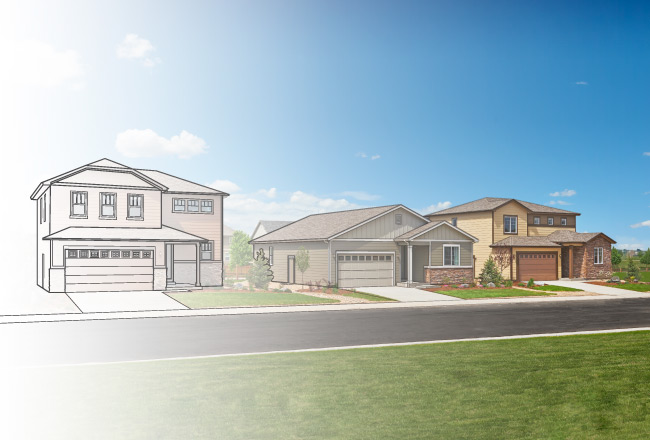When you decide to purchase a home, you have several choices. You can buy a resale home that was previously constructed and owned by someone else. Or you can choose to be the very first owner in a never-been-lived-in home! The most common choice for new home construction is to select a homebuilder who will build your new home on a homesite in a developing neighborhood. Buyers used to resale sometimes fear the unknown aspects of the new home process—but that’s not necessary! Join us as we sort the new home fact from fiction below:
Construction quality & efficiency
One myth common among potential homebuyers is that the quality of new homes doesn’t rival older construction. This is pure fiction! With features such as energy-efficient insulation and advanced framing methods, homes have come a long way. Homes are more tightly built with a range of durable materials that weren’t even available to builders of the past. According the the U.S. Energy Information Administration’s 2013 survey, “new homes consumed 21% less energy for space heating than the average home.”*
New homes & character
There is a misconception that all new homes are churned out on an assembly line with every home a cookie-cutter copy of the next. More fiction. When you choose the right builder for your new home, you’ll have the ability to select features that make your home unique. You’ll likely have several floor plan options and the ability to select structural features that fit your lifestyle (i.e. an upstairs loft can become an extra bedroom). Each floor plan also has a variety of exterior styles so your home won’t look like your neighbor’s. From there, the possibilities are endless. At Richmond American, there are hundreds of modern fixtures and finishes available. With older homes, you might have to rip out the entire interior to get the same look. If character means orange carpeting and outdated countertops, we say no thank you!
Take note: As an added bonus, new homes are built for the modern lifestyle with walk-in closets and open floor plans. At Richmond American, even little details such as the light switch locations and the placement of the dishwasher are top of mind for our design team.
The amount of money you’ll need up front
Here’s a fact! Whether you’re buying new or resale, you won’t start making mortgage payments until you close on the finished house. As a standard practice, builders require an earnest money deposit up front to reserve your homesite. Talk to a sales associate about the earnest money policy at your individual community. If you’re just beginning to save for a down payment and want to know how much to plan for, speak to a loan officer.
Insider tip! If you have a home to sell, we recommend speaking to a real estate agent to help coordinate your two closings. Weather conditions and many other delays can push your new home closing date out. It’s best to be ready with a temporary housing plan if you end up having a gap.
*U.S. Energy Information Administration, “Newer U.S. homes are 30% larger but consume about as much energy as older homes.” Retrieved June 6, 2017.




